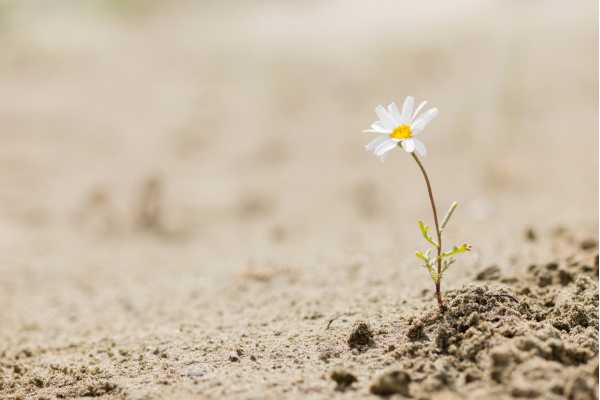In personal development, self-awareness is essential because it leads people on a life-changing path of self-awareness and personal development. In this post, we explore the deep importance of accepting personal development and self-awareness.
Our focus revolves around the theme: “Discover Yourself: The Journey of Self-awareness and Personal Growth.” Embarking on this journey is akin to embarking on an exciting adventure, where one navigates through the depths of their being, unraveling layers of identity and purpose.
As we embark on this discussion, we aim to provide insights into the captivating process of self-discovery. By understanding the importance of self-awareness, individuals can unlock their true potential and cultivate a fulfilling life.
Join us as we explore the intricacies of this transformative journey and uncover the path to greater self-awareness and personal growth.
Understanding Self-Awareness: Unveiling the Power Within
Self-awareness, the cornerstone of personal development, entails a deep understanding of one’s own thoughts, emotions, and behaviors. Its relevance transcends boundaries, influencing not only personal well-being but also professional success.
By fostering self-awareness, individuals gain clarity about their strengths, weaknesses, and values, empowering them to make informed decisions aligned with their authentic selves. Moreover, self-awareness cultivates a heightened sense of self-esteem and confidence, nurturing a positive self-image and resilience in the face of adversity.
In both personal and professional realms, the benefits of self-awareness are profound. In personal life, it fosters healthier relationships, as individuals become attuned to their own needs and emotions, thereby enhancing empathy and understanding towards others. In the workplace, self-awareness enables effective leadership, communication, and collaboration, fostering a culture of openness and growth.
To make more inclusive and knowledgeable decisions, a leader who is self-aware may identify their own prejudices and limits. Likewise, self-awareness promotes vulnerability and sincerity in interpersonal relationships, strengthening bonds and encouraging respect for one another.
Thus, embracing self-awareness not only enhances individual well-being but also enriches the fabric of society, paving the way for greater empathy, understanding, and fulfillment.
The Significance of Authenticity: Embracing Your True Self
Authenticity, synonymous with genuineness and integrity, lies at the heart of self-awareness and personal growth. It encompasses the courage to embrace one’s true identity, values, and beliefs, despite societal pressures or expectations. At its core, authenticity is deeply intertwined with self-awareness, as it requires a profound understanding of one’s own identity and a commitment to living in alignment with it.
Living authentically yields a myriad of benefits, both internally and externally. Individuals who embrace authenticity experience greater inner peace, as they no longer feel the need to hide behind masks or conform to societal norms. Moreover, authenticity fosters deeper connections and relationships, as others are drawn to genuine sincerity and honesty.
However, remaining authentic in a diverse world presents its own set of challenges. In a society that often values conformity over individuality, staying true to oneself requires courage and resilience. Individuals may face judgment, criticism, or rejection for deviating from societal expectations, making authenticity a courageous act of self-expression.
To cultivate and express authenticity in daily life, individuals can employ various strategies. Firstly, self-reflection and introspection are essential for gaining clarity about one’s values, passions, and aspirations. Additionally, setting boundaries and honoring personal values helps individuals stay true to themselves, even in challenging situations.
Furthermore, practicing vulnerability and embracing imperfections fosters genuine connections and allows for authentic self-expression.
In essence, authenticity is not merely a trait but a way of life—a conscious choice to honor one’s truth and live with integrity.
By embracing authenticity, individuals unlock the door to self-discovery, empowerment, and meaningful connections, ultimately leading to a life of fulfillment and purpose.
The Pillars of Personal Growth: Nurturing the Essence Within
Personal growth encompasses a multifaceted journey of self-improvement and self-discovery, guided by foundational pillars that serve as cornerstones for holistic development.
Identification and Explanation of Fundamental Pillars
At its core, personal growth rests upon several fundamental pillars, each contributing to the cultivation of a well-rounded individual. These pillars include mental development, emotional growth, spiritual enlightenment, and physical well-being.
People can achieve their goals of living a satisfying life and reaching their full potential by cultivating these foundations.
Mental Development
Central to personal growth is the pursuit of mental development, which involves continuous learning and intellectual enrichment. Embracing a mindset of lifelong learning fosters cognitive agility and adaptability, empowering individuals to navigate the complexities of the modern world with confidence and clarity.
The mind is stimulated, views are expanded, and critical thinking abilities are strengthened by reading, going to workshops, or taking educational courses. People build a strong basis for their own development and advancement when they embrace intellectual curiosity and actively seek knowledge.
Emotional Growth
Equally essential is the cultivation of emotional growth, which encompasses the development of emotional intelligence and the mastery of one’s inner world. The capacity to identify, comprehend, and effectively control one’s own and other people’s emotions is referred to as emotional intelligence.
By honing emotional intelligence skills, individuals cultivate resilience, empathy, and interpersonal relationships, fostering greater emotional well-being and psychological resilience.
Moreover, developing emotional resilience enables individuals to navigate life’s challenges with grace and equanimity, bouncing back from setbacks and adversity with renewed strength and determination.
People can develop self-awareness, enhance emotional well-being, and get a deeper knowledge of emotions through techniques like mindfulness, journaling, and therapy. These practices can pave the way for significant personal development and transformation.
Essentially, mental and emotional development are the cornerstones of personal growth, fostering the union of the mind and the heart. Individuals can unlock their true potential and lead fulfilling lives by embracing lifelong learning and emotional intelligence. This leads to a transformative journey of self-discovery and self-mastery.
Overcoming Challenges on the Journey
Starting a self-discovery path is not without challenges. People face a variety of challenges that put their courage and fortitude to the test as they travel the route to personal development. People can travel the path more easily and clearly if they acknowledge and deal with these obstacles.
Identification and Discussion of Key Obstacles
Throughout the journey of self-discovery, individuals often grapple with internal and external obstacles that hinder their progress and self-realization. These obstacles may manifest in the form of self-doubt, fear, societal pressures, or limiting beliefs.
By identifying and understanding these challenges, individuals can develop strategies to overcome them and continue their journey towards personal growth and fulfillment.
Self-Criticism and Self-Sabotage
One common obstacle on the path of self-discovery is self-criticism and self-sabotage. Individuals may undermine their own progress by succumbing to negative self-talk and self-doubt. To overcome these patterns of self-destructive behavior, individuals can practice self-compassion and cultivate a positive mindset.
By reframing negative thoughts, setting realistic goals, and celebrating small victories, individuals can break free from the cycle of self-sabotage and cultivate a greater sense of self-worth and empowerment.
Fear of the Unknown
Anxiety and worry about change and uncertainty are common manifestations of fear of the unknown. People who embrace an attitude of curiosity and openness to new experiences can get over this phobia.
Through reinterpreting fear as a chance for development and education, people can venture beyond their comfort zones and accept the transformational potential of alteration.
One can also more easily and resiliently handle anxiety and negotiate uncertainty by engaging in mindfulness, visualization, and deep breathing exercises.
External Pressures
External pressures, such as societal expectations or familial obligations, can pose significant challenges on the journey of self-discovery. While it’s important to honor and respect these external influences, individuals must also stay true to themselves and their values.
By setting boundaries, communicating openly, and prioritizing self-care, individuals can navigate external pressures while remaining authentic and true to their own path.
Ultimately, overcoming these challenges requires courage, resilience, and a steadfast commitment to personal growth and self-discovery.
Celebrating Progress and Transformation
Amidst the journey of self-discovery, it’s crucial to pause and acknowledge the strides made along the way. Celebrating moments of personal growth not only reinforces progress but also fosters a sense of gratitude and fulfillment.
Highlighting the importance of recognizing and celebrating personal growth serves as a reminder of the journey’s significance and the resilience demonstrated throughout. Whether it’s overcoming a fear, achieving a milestone, or simply embracing newfound insights, each step forward is worthy of celebration.
Creating rituals of celebration and gratitude can further amplify the impact of acknowledging progress. These rituals can take various forms, such as journaling about accomplishments, treating oneself to a special activity, or expressing gratitude towards supportive friends and mentors.
By incorporating these rituals into daily life, individuals cultivate a positive mindset and deepen their appreciation for the journey of self-discovery.
Moreover, maintaining focus on the continuous journey of self-development is essential for sustained growth and fulfillment. Embracing the process of lifelong learning and self-improvement keeps individuals motivated and engaged in their personal growth journey.
Setting new goals, exploring new interests, and seeking out opportunities for growth ensures that the journey remains dynamic and evolving.
In essence, celebrating progress and transformation serves as a testament to one’s resilience and commitment to personal growth.
By embracing rituals of celebration and gratitude and staying focused on the journey ahead, individuals cultivate a deeper sense of fulfillment and purpose, paving the way for continued growth and self-discovery.
The Journey Never Ends: Continuous Learning and Growth
The pursuit of self-awareness and personal growth is an ongoing journey that transforms every aspect of our lives. By understanding our thoughts, emotions, and behaviors, we become capable of making more informed decisions, aligning our actions with our values, and facing challenges with resilience.
Authenticity, which is deeply tied to self-awareness, empowers us to live truthfully and form deeper, more meaningful connections with others. Along the way, it’s essential to celebrate the progress made, embracing each step as part of our evolution toward a more fulfilled, purpose-driven life.
FAQs: Your Self-Discovery Journey
What is self-awareness, and why is it important?
Recognizing and comprehending your own feelings, ideas, and actions is known as self-awareness. You may make better judgments, build stronger connections, and promote personal development with its assistance, which makes it crucial.
How do I start my personal growth journey?
Begin with self-reflection. Identify your strengths, weaknesses, values, and goals. Engage in activities like journaling, meditation, or seeking feedback from others to better understand yourself.
What are the biggest challenges to personal growth?
Common challenges include fear of the unknown, self-doubt, and external pressures from society or family. Overcoming these obstacles requires self-compassion, resilience, and a willingness to step outside your comfort zone.
How does self-awareness improve professional success?
In professional settings, self-awareness enhances leadership, communication, and decision-making. It helps you understand your own biases, manage emotions, and create a positive work environment.
How can I stay authentic in a world that values conformity?
Staying true to yourself requires courage. Focus on your core values, set personal boundaries, and practice vulnerability. Authenticity fosters genuine connections and helps you lead a more satisfying life.

Emily Johnson is a writer focused on personal development, relationships, and well-being. Her articles offer practical advice for self-discovery, growth, and effective communication. With a blend of empathy and expertise, she guides readers toward a more fulfilling and balanced life.

